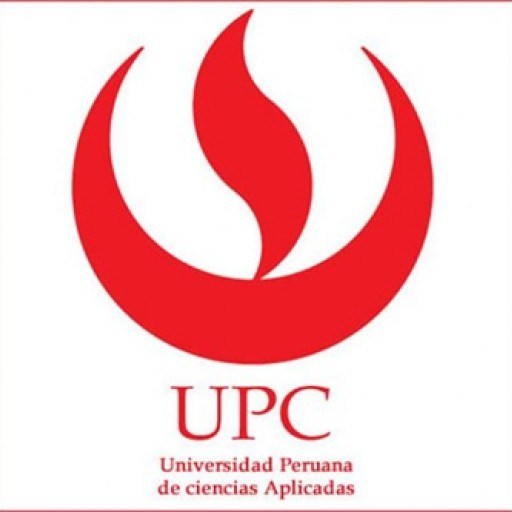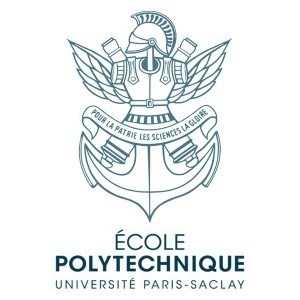Photos of university / #universityofleeds
The MSc in Nuclear Fission — Next Generation Nuclear at the University of Leeds is a cutting-edge postgraduate programme designed to equip students with comprehensive knowledge and practical skills in the field of nuclear energy, focusing particularly on next-generation nuclear technologies. This programme is ideal for individuals seeking to advance their careers in the nuclear industry, research institutions, or policymaking bodies, and who are passionate about contributing to the development of sustainable and innovative nuclear power solutions. Throughout the course, students will explore the fundamental principles of nuclear physics, reactor engineering, and safety, alongside emerging topics such as advanced reactor designs, nuclear fuel cycles, and waste management strategies. The curriculum is structured to provide a strong theoretical foundation complemented by practical laboratory work, simulations, and project-based learning, enabling students to apply their knowledge to real-world challenges faced by the nuclear sector. Collaborating with industry experts and research groups at Leeds, students will have opportunities to engage in cutting-edge research projects, fostering a deep understanding of the technical, environmental, and regulatory aspects of next-generation nuclear systems. The programme also emphasizes sustainability and safety, addressing the key issues for the future of nuclear power, including reactor efficiency, reducing radioactive waste, and ensuring operational safety standards. Graduates of this programme will be well-prepared for careers in nuclear technology development, energy policy, environmental assessment, and consultancy roles, or for further academic research at doctoral levels. With access to state-of-the-art facilities and a vibrant academic community, students will benefit from a stimulating learning environment that encourages innovation and critical thinking. The University of Leeds’s reputation for excellence in science and engineering, combined with strong industry links, ensures that graduates are highly competitive in the global nuclear workforce. Whether aiming to work in the UK or internationally, students completing this programme will possess the knowledge, skills, and professional insights necessary to lead the next generation of nuclear energy solutions, contributing to a cleaner, safer, and more sustainable future.
The Nuclear Fission — Next Generation Nuclear program at the University of Leeds is a cutting-edge MSc course designed to equip students with comprehensive knowledge and practical skills in the field of advanced nuclear technology. This program explores the fundamental principles of nuclear fission, including reactor physics, thermodynamics, and material science, with a focus on innovative solutions for sustainable energy production. Students will study the design, operation, and safety of next-generation nuclear reactors, such as small modular reactors (SMRs) and fast breeder reactors, emphasizing the latest developments in nuclear technology aimed at reducing waste and enhancing efficiency.
Throughout the course, learners will engage in rigorous coursework covering nuclear engineering, reactor physics, nuclear materials, and radiological safety, combined with practical laboratory sessions. The program emphasizes multidisciplinary approaches, integrating aspects of engineering, physics, chemistry, and environmental science to prepare graduates for roles in the nuclear industry, research, and policy development. Special modules focus on the challenges of nuclear fuel cycles, waste management, and the environmental impacts of nuclear power, fostering a comprehensive understanding of the sector’s future.
Students will benefit from state-of-the-art facilities at Leeds, professional industry placements, and collaborations with leading research institutions and nuclear companies. The program aims to develop highly skilled professionals ready to contribute to the development of next-generation nuclear power plants that are safer, more efficient, and environmentally sustainable. Graduates will be well-prepared to pursue careers in nuclear design, safety assessment, regulatory agencies, or further research at doctoral levels. The MSc in Nuclear Fission — Next Generation Nuclear offers an ideal combination of theoretical foundations and practical application, preparing students to become leaders in the evolving nuclear energy landscape.
Program requirements for the MSc in Nuclear Fission – Next Generation Nuclear at the University of Leeds typically include a relevant undergraduate degree such as a Bachelor’s degree in Physics, Engineering, or a related STEM subject, with a good classification (usually 2:1 or above). Applicants are expected to demonstrate a solid foundation in nuclear physics, reactor physics, thermal hydraulics, and related disciplines. Prior experience or knowledge in nuclear energy systems, radiation safety, and reactor design can be advantageous. Proficiency in mathematics, particularly in calculus, differential equations, and numerical methods, is essential for success in this program. Additionally, the program may require applicants to have completed modules or coursework covering nuclear technology, materials science, and computational modeling.
English language proficiency is a standard requirement for international students, typically evidenced by a IELTS score of 6.0 or equivalent. The application process usually involves submitting academic transcripts, a personal statement outlining motivation and relevant experience, and references from academic or professional contacts. Some programs might also require a CV highlighting relevant internships or work experience in the nuclear sector.
Students are expected to engage with advanced coursework that includes nuclear physics, reactor engineering, safety analysis, and next-generation nuclear technology development. The program emphasizes practical skills, including computational simulation, safety assessment, and potentially experimental techniques in nuclear engineering. Research components often involve working on cutting-edge topics such as small modular reactors, fast reactors, or advanced fuel cycles.
The program aims to prepare graduates for careers in the nuclear industry, research institutions, or regulatory agencies, emphasizing the development of technical expertise combined with safety and sustainability considerations. It is designed both for recent graduates and for professionals seeking to deepen their knowledge of next-generation nuclear systems. Successful applicants typically demonstrate both academic excellence and a clear interest in advancing nuclear technology.
The Nuclear Fission — Next Generation Nuclear program at the University of Leeds offers a comprehensive financial support structure designed to assist students throughout their studies. Tuition fee details vary depending on factors such as residency status and level of study, with domestic and international students potentially qualifying for different fee rates. For UK students, annual tuition fees are typically aligned with those set for other engineering and physical sciences programs, providing affordability paired with the university’s reputation. International students should expect higher fees reflecting the global nature of the program and the university’s commitment to attracting talented individuals worldwide.
In addition to tuition fees, students can access a range of funding options including government-sponsored loans, scholarships, and bursaries. The UK government provides student loans that cover tuition costs and offer manageable repayment terms tied to income. The university also offers financial assistance through merit-based scholarships, which reward academic excellence and potential in nuclear engineering and related fields. Bursaries are available for students demonstrating financial need, ensuring that talented individuals are not restricted by economic barriers.
Part-time work opportunities are available both within the university and in the surrounding Leeds community, enabling students to supplement their income while gaining valuable professional experience. The university’s careers service actively supports students in identifying employment options during their studies. Furthermore, some industry partners and research projects associated with the program may offer stipends or paid placements, providing practical experience and financial benefits.
Overall, the program’s financing structure strives to make advanced nuclear engineering education accessible and sustainable for a diverse student body. Financial planning advice is available through the university’s student services to help applicants understand costs, funding sources, and repayment obligations. Prospective students are encouraged to explore all available financial aid options early in the application process to ensure they can fully focus on their academic and research pursuits in the field of next-generation nuclear technology.
The MSc in Nuclear Fission — Next Generation Nuclear at the University of Leeds is a forward-looking programme designed to prepare graduates for careers in the rapidly evolving nuclear industry. This course provides an in-depth understanding of the fundamental principles of nuclear fission, focusing on the development of next-generation nuclear technologies that aim to improve safety, efficiency, and sustainability. The curriculum encompasses a wide range of topics including reactor physics, nuclear materials, advanced reactor designs, nuclear safety systems, and strategies for waste management and decommissioning. Emphasizing both theoretical knowledge and practical skills, students have the opportunity to engage in laboratory experiments, simulation exercises, and industry-focused projects that reflect real-world challenges faced by the nuclear sector.
The programme is tailored for individuals aiming to contribute to the innovation and deployment of innovative nuclear reactors such as Small Modular Reactors (SMRs) and Generation IV systems. It also addresses relevant regulatory frameworks, environmental considerations, and the economic aspects of nuclear power. The course benefits from the university’s strong links with the nuclear industry, governmental bodies, and research institutions, facilitating networking opportunities, guest lectures, and collaborative projects. Students are encouraged to develop analytical skills, problem-solving abilities, and research competencies that are essential for advancement in the nuclear field.
The University of Leeds has a renowned research environment in energy and nuclear physics, providing students with access to cutting-edge facilities and research outputs. Graduates of this programme are well-equipped for careers in nuclear engineering, research and development, safety analysis, regulatory agencies, and consultancy firms. The course aims to produce professionals who can contribute to the safe, sustainable, and innovative future of nuclear energy, aligning with global efforts to address energy security and climate change challenges. The MSc program typically spans one year full-time or two years part-time, with a structured combination of taught modules, practical sessions, and a research dissertation. Overall, the MSc in Nuclear Fission — Next Generation Nuclear at Leeds offers a comprehensive and innovative pathway into the nuclear industry, fostering the next generation of nuclear scientists and engineers dedicated to advancing nuclear technology in a safe and sustainable manner.










